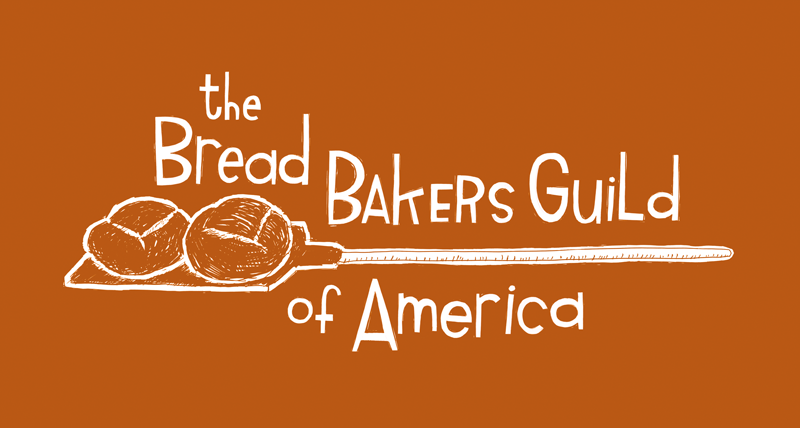For Azikiwee Anderson, baking started as an experiment but quickly became a calling. He didn’t grow up in a baking family, nor did he see people who looked like him in the artisan bread world. But when he picked up a bag of flour during the pandemic, something clicked.
What began as a personal challenge turned into Rize Up Bakery, a movement that blends high-quality sourdough, cultural storytelling, and a commitment to community empowerment. Azikiwee isn’t just making bread—he’s creating representation, access, and opportunity in a space where Black bakers have been historically underrepresented.
His journey is about passion, resilience, and breaking barriers—not just in baking, but in building a business that uplifts people and brings communities together.
In this Black History Month spotlight, we sat down with Azikiwee to discuss his path into baking, how he turned Rize Up into a thriving business, and why representation in the food industry matters more than ever.
.jpg)
What first sparked your passion for baking? How did that lead to the creation of Rize Up?
Azikiwee Anderson: "I never set out to be a baker. If you had told me years ago that I’d be running a bakery, I would have laughed. I was a private chef before the pandemic, but I never baked. In fact, growing up, I didn’t even see baking as something I could do—because I didn’t see Black bakers in that space. I had never seen anyone that looked like me bake.
I honestly thought that baking was just something white people did. The number of things that, as a little Black kid, you're told you can't do or that 'we don’t do' is oppressive, right? I never had the opportunity to even imagine myself doing it.So, when people asked me during the pandemic, ‘Hey, you should do this with us,’ I was like, ‘Nah, I don’t do that.’ But I got lightweight shamed into it. They were like, ‘Come on, we're all doing it,’ so I did it. And I was terrible at it. And that pissed me off. I hated that I sucked at it. So, I kept at it.
Then the murder of George Floyd happened, and that moment broke my mind. Every day, I wanted to yell or cry, and I realized that when I disappeared into making bread, I felt okay. It was like therapy. It made me okay. It was very zen-like, and I could kind of work on healing myself. And the process of baking and sharing that bread with others—it just felt like it mattered."
.jpg)
Caption: Pictured above is Rize Up's signature Ube Sourdough loaf.
You started Rize Up during the pandemic. What challenges did you face, and how did you push through them?
"I started in my kitchen, just baking for myself. One loaf turned into four, then thirty, then a hundred. When I got a write-up in the San Francisco Chronicle, I had 500 orders overnight. I had to turn my website off because I couldn’t even process that amount of bread. I didn’t have a commercial kitchen; I was just figuring it out on the fly.
And then there’s the fact that I’m a big Black dude in the artisan bread world. People weren’t expecting me to be behind this brand. I’d show up to meetings and people would assume I was delivering the bread—not making it. But instead of letting that get me down, I used it as fuel to show that we do belong here."*
How has your past experience influenced your approach to bread?
"I was a private chef before this, so I approach flavors and technique differently. I think about bread as food—not just as a baking science but as something that carries flavors, cultures, and stories. I want people to taste the intention behind what we make."
.jpg)
What role has your heritage played in shaping your identity as a baker and entrepreneur?
"I know what it feels like to be ‘other.’ I know what it feels like to not feel important or to have to assimilate to be accepted. So I decided that if I was going to make bread, I wanted to make things that reflect the people who don’t always see themselves represented in this industry. Our flavors, our ingredients, our approach—it’s all about making sure people feel included and seen."
Rize Up started as a grassroots movement. How do you balance staying true to your mission while growing your business?
"We’re in over 70 locations now, but at our core, we’re still a community-driven bakery. One of the things I care about most is accessibility—bread shouldn’t be a luxury. That’s why I’m working on ways to accept EBT and other programs so that we can keep serving people regardless of income level."
.jpg)
How have collaborations and community outreach shaped Rize Up’s success?
"Collaboration is everything. We work with local farms, food banks, and other small businesses. It’s not just about selling bread—it’s about showing up for our community in real ways."
What’s the best advice you’ve received since starting Rize Up?
"‘Just keep going.’ There are always going to be reasons to quit. Don’t."
What does the Bread Bakers Guild of America mean for your work as a baker and business owner?
"Being part of the Guild means representation. I never had a baking community growing up, so to be welcomed into this space means a lot. It’s also a place to learn and share, which is exactly what this industry needs."
What’s next for you and Rize Up?
"We’re working on opening a café—a space where people can come, see what we do, and feel part of it. Beyond that, I just want to keep making space for others and keep baking bread that means something."
Follow Rize Up Bakery: Website| [Instagram]
